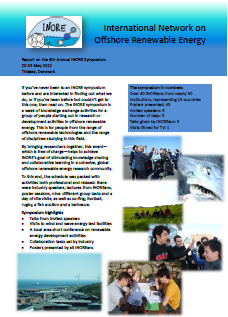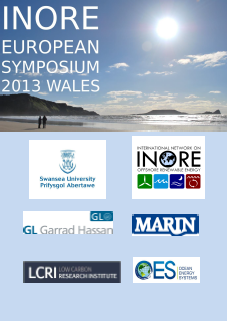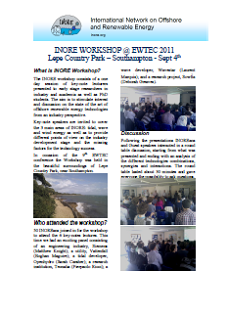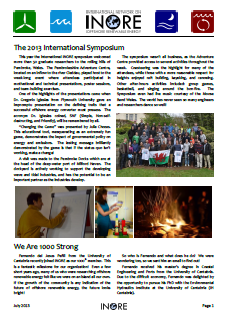International Network on Offshore Renewable Energy (www.inore.org / info@inore.org)
INORE, “an informal, yet professional, arena“ made for and by industry and academia researchers in marine renewables.
- INORE Symposium in Thisted, Denmark – 2012
Julia F. Chozas was Main organizer of the 5th INORE Symposium at Thisted, Denmark. She was the representative of industrial relations, accountant responsible, sponsorships coordinator, local contact person and event manager. Thank you everyone for such a nice experience!
- INORE Symposium in Wales, UK – 2013
Julia F. Chozas presented “Changing the Game” at 2013 International INORE Symposium in Wales:
“This educational tool, masquerading as an extremely fun game, demonstrates the impact of governmental policy on energy and emissions. The lasting message brilliantly demonstrated by the game is that if the status quo isn’t working, make a change!”
Read more here.
- INORE Workshop in Southampton, UK – 2011
Julia F. Chozas co-organised INORE workshop in Southampton, as a side event of EWTEC 2011.
- What is INORE?
INORE seeks to advance the progress of offshore energy by development of the knowledge and skills of those just starting out in the field. To this end, we hold symposia where INOREans can present their research to the rest of the community and hear about the findings and experiences of those who have already been working in offshore renewables for some time. We also hold workshops alongside other marine renewables events and have a website that allows for the sharing of files, information about upcoming events, projects and jobs and the possibility to find others working on similar problems or with the same techniques.
INOREans are primarily Ph.D. and post-doctoral researchers, but we welcome people at a similar level researching or developing in an industrial context, or for a government agency or NGO. We have members working on projects with all sorts of offshore renewables technologies: offshore wind, wave, tidal, OTEC and ocean biomass. Our members also undertake research activity across the whole supply chain from environmental impacts, through mechanical engineering to grid options and the social and legal negotiations required for marine projects to go ahead.



